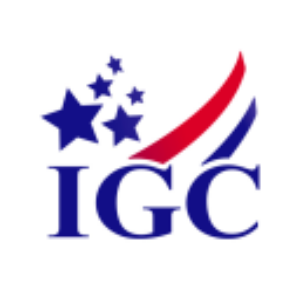Preclinical Analyses of TGR-63 Demonstrate Blood-Brain Barrier Permeability and Safety Profile
- Preliminary Analysis confirms the presence of TGR-63 in brain tissue and shows no adverse effects. -
Ensuring effective drug delivery to the brain is a major challenge in treating Alzheimer’s disease. The preclinical studies on TGR-63 included an analysis of the partition coefficient in an aoctanol-water assay the partition coefficient calculated as Log Poctanol/water, indicated that LogP=0.1, which suggests that TGR-63 possesses favorable properties for penetrating the blood-brain barrier, a critical step in accessing brain tissue. Additionally, mass spectrometry analysis of brain tissue samples from TGR-63-treated mice confirmed the presence of the compound in the brain, validating its ability to cross the blood-brain barrier in mice and potentially in humans.
Furthermore, the safety profile of TGR-63 was evaluated through extended studies in mice. Mice received daily doses of TGR-63 for eight months without exhibiting any adverse effects. Comprehensive examinations of major organs, including the liver, heart, spleen, and kidneys, revealed no signs of toxicity, inflammation, or cell death, indicating biocompatibility and safety. IGC continues to progress TGR-63 towards clinical trials, representing a significant advancement in Alzheimer's treatment research.
Ram Mukunda, CEO of IGC, commented, “These preliminary findings underscore TGR-63’s potential as a safe and effective treatment for Alzheimer’s disease. As we forge ahead with this amyloid-targeting drug, we are encouraged by its potential to offer an improved safety profile compared to currently approved treatments. This strategic approach should allow us to offer a diverse portfolio of Alzheimer’s-focused drugs that prioritize patient safety and efficacy. In addition to the focus on Alzheimer’s, we are training sophisticated AI models to analyze potential efficacy of targeting other receptors such as GLP-1, CB1, among others. We have four platforms, IGC-AD1, TGR, IGC-C, IGC-M and LMP. These platforms allow us to modify the core molecule and potentially target other receptors that could impact other diseases and conditions. We are very excited with the possibilities."
About IGC Pharma Inc. (dba IGC):
IGC is focused on Alzheimer’s disease, developing innovative therapies to address this devastating illness. The Company’s mission is to transform the landscape of Alzheimer’s treatment with a robust pipeline of five promising drug candidates. IGC-AD1, with previously disclosed interim results, is in a Phase 2 clinical trial for agitation in dementia associated with Alzheimer’s (clinicaltrials.gov, NCT05543681). The remaining four molecules are in the pre-clinical stage of development. TGR-63 has been shown to disrupt the progression of Alzheimer’s by targeting Aβ plaques, a key hallmark of Alzheimer’s. IGC-1C, targets tau protein and neurofibrillary tangles, representing a forward-thinking approach to Alzheimer’s therapy. IGC-M3, aims to inhibit the aggregation of Aβ plaques, potentially impacting early-stage Alzheimer’s. LMP is designed to target multiple hallmarks of Alzheimer’s including plaques and tangles for a comprehensive approach to the disease. In addition to our drug development pipeline, we are attempting to harness the power of Artificial Intelligence to develop early disease detection models, optimize our clinical trials, and explore new applications for our drugs.
Forward-Looking Statements:
This press release contains forward-looking statements. These forward-looking statements are based largely on IGC Pharma's expectations and are subject to several risks and uncertainties, certain of which are beyond IGC Pharma's control. Actual results could differ materially from these forward-looking statements as a result of, among other factors, the Company's failure or inability to commercialize one or more of the Company's products or technologies, including the products or formulations described in this release, or failure to obtain regulatory approval for the products or formulations, where required, or government regulations affecting AI or the AI algorithms not working as intended or producing accurate predictions; general economic conditions that are less favorable than expected; the FDA's general position regarding cannabis- and hemp-based products; and other factors, many of which are discussed in IGC Pharma's
View source version on businesswire.com: https://www.businesswire.com/news/home/20240709006689/en/
Investors
IMS Investor Relations
Walter Frank/Rosalyn Christian
igc@imsinvestorrelations.com
(203) 972-9200
Media
JVPRNY
Janet Vasquez
jvasquez@jvprny.com
(212) 645-5498
Source: IGC Pharma, Inc.







